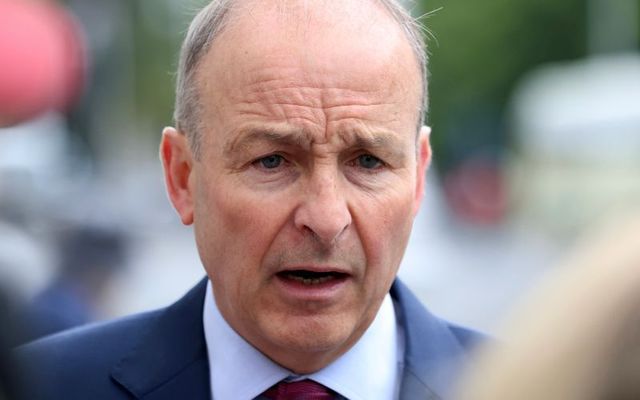Irish citizens should not travel to Israel and should leave Lebanon, Ireland's Department of Foreign Affairs (DFA) said in an update today, Monday, August 5.
"Our travel advice for Israel has changed due to growing instability in the region," Taoiseach Simon Harris said in a post on X on Monday morning.
"The government is now advising Irish citizens do not travel to Israel.
"The same advice applies to Lebanon and Palestine."
Our travel advice for Israel has changed due to growing instability in the region. The government is now advising Irish citizens do not travel to Israel.
The same advice applies to Lebanon and Palestine.
— Simon Harris TD (@SimonHarrisTD) August 5, 2024
In a separate post, Tánaiste and Minister of Foreign Affairs Micheál Martin said: "We have updated our travel advice for Israel.
"I urge citizens to avoid all travel to Israel at this time. I also remind citizens to avoid travel to Lebanon."
We have updated our travel
advice for Israel.I urge citizens to avoid all travel to Israel at this time.
I also remind citizens to avoid travel to Lebanon.
— Micheál Martin (@MichealMartinTD) August 5, 2024
The Tánaiste said in a subsequent post: "I strongly advise Irish citizens in Lebanon to leave the country and take advantage of the commercial options still available.
"Safety and security of citizens is our priority. DFA officials in the region and Dublin are available for consular advice."
I strongly advise Irish citizens in Lebanon to leave the country and take advantage of the commercial options still available.
Safety and security of citizens is our priority. DFA officials in the region and Dublin are available for consular advice.https://t.co/EzdVyAQXqz
— Micheál Martin (@MichealMartinTD) August 5, 2024
Ireland's DFA says in its updated travel advice for Israel and the Occupied Territories: "Irish citizens are strongly advised not to travel to border areas with Lebanon, as directed by local authorities. The Israeli military has announced that the area is a closed military zone and entry into the area is prohibited due to ongoing military operations.
"Further incidents can occur without notice and there is potential for intense escalation; extreme caution is advised."
The DFA notes that "Israeli law permits immigration officials to deny entry to foreign nationals who have publicly called for a boycott of Israel and/or settlements, or who belong to an organisation which has called for such a boycott."
Irish citizens currently in Israel or Palestine who have not already done so, are asked to register on the Department’s Citizens Registration platform here.
In its updated travel advice for Lebanon, the DFA is strongly advising against all travel to the country and strongly advising Irish citizens to leave the country.
"The situation in Lebanon remains highly volatile with intensifying clashes along the southern border in recent weeks," the DFA says.
"In light of the unpredictability of the situation, events could escalate throughout the country with very little warning. This could affect exit routes out of Lebanon.
"Citizens should be aware that, in the event that the political or security situation deteriorates, we are likely to be very limited in the assistance that we can provide. Citizens should not rely on evacuation options being possible if commercial options become unavailable.
"If for any reason you cannot leave Lebanon now, we would advise you to exercise extreme caution in your movements and put contingency plans in place to leave Lebanon as soon as possible.
"Citizens should also ensure their documentation, including passports, is up-to-date.
"If you are an Irish citizen with a family member who requires a visa for travel to Ireland, an application for a visa to enter Ireland should be made online here without delay. Once submitted, an appointment should be made with Ireland’s Honorary Consulate: Tel: + 961 139 5005 / email here.
"Citizens should avoid all gatherings and demonstrations, remain vigilant and follow the instructions of local authorities.
"As we do not have an Irish Embassy in Beirut, we advise Irish citizens in Lebanon who have not already done so to register with the Embassy of Ireland in Cairo."
While tensions in the region have been high, a rocket attack at a soccer pitch in Majdal Shams in the Israeli-occupied Golan Heights on July 27 could trigger further escalation.
Israeli authorities, as well as the US, blamed Lebanese Hezbollah for the attack that killed 12 children and teens, though Hezbollah denied responsibility.
"There is no doubt that Hezbollah has crossed all the red lines here, and the response will reflect that," Israeli Foreign Minister Israel Katz told Israeli Channel 12 the day after the attack, according to the Associated Press.
"We are nearing the moment in which we face an all-out war."
On Sunday, Lt Col Tom Fox, the commander of the Irish troops stationed at Camp Shamrock in South Lebanon, told RTÉ's This Week programme: "The UNIFIL [United Nations Interim Force In Lebanon] assessment of the current situation is that it is tense and volatile here.
"On the ground, I think that translates to a level of uncertainty that we are currently experiencing - a level of uncertainty that is at its highest since April of this year in the aftermath of Iran's drone attack on Israel.
"Up until last week, the warring parties have engaged in daily exchanges of fire that have remained below a so-called threshold of escalation.
"However, I suppose, recent events, such as the tragic incident in Majdal Shams ... coupled with the deaths of the Hezbollah leader in South Beirut, and the Hamas leader Ismail Haniyeh on Tuesday, there's a sense that an escalation is imminent."




Comments